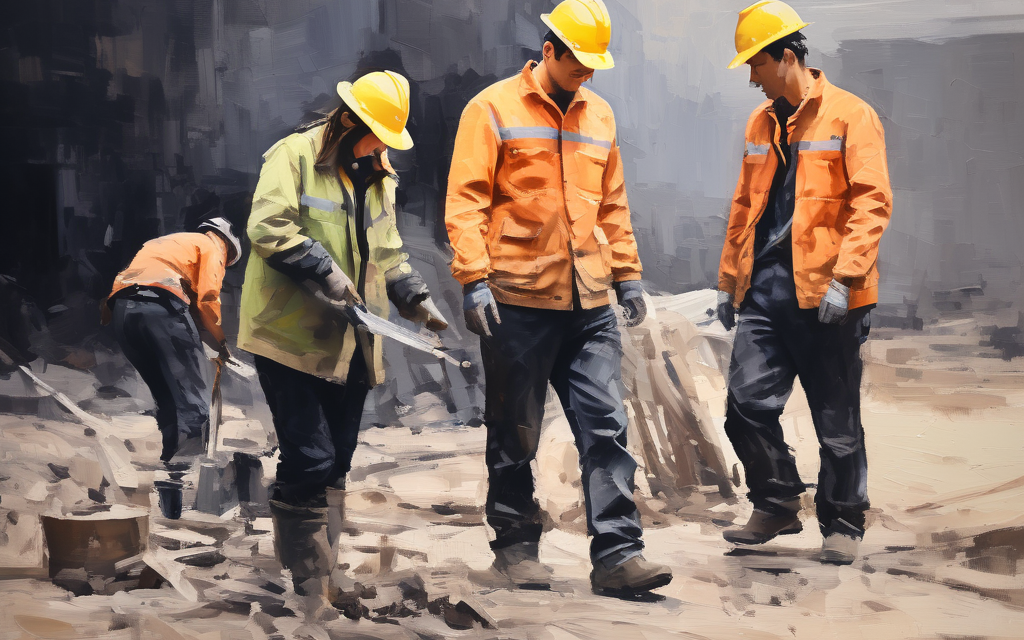Creating a great place to work is essential for any organisation seeking to attract and retain top talent and enhance productivity.
It goes beyond salary and benefits, with businesses needing to foster a supportive, inclusive and engaging environment where employees feel valued and motivated.
While it’s easy to say that a positive culture is the foundation of any successful business, what does it really mean to be a ‘Great Place to Work’ and how can this be achieved? An overarching commitment to our colleagues’ growth while staying true to our corporate purpose of ‘connecting people, improving lives’ is what contributed to us being ranked #3 in the UK’s Best Workplaces league table this year. Here we take a look at some of the key areas that organisations need to focus on, and the different initiatives and programmes that can be implemented for happier employees.
Prioritising connection and open communication
Providing a sense of connection and purpose for employees is hugely important, as it helps to maintain motivation while instilling a sense of pride in the company and the work that’s being done. Employee engagement and internal comms have remained a consistent focus for us over the last few years, and we have ensured that communication is always two-way with open channels available for our colleagues to respond. Teams across the business run daily ‘Performance Dialogues’, which are short and informal, but still structured, sessions where the day’s tasks, KPIs, news and overall team actions and performance are discussed.
Alongside this, we have an Employee Consultation Forum where representatives from each function bring questions to the management team, and important changes coming up for the business are discussed and consulted on. Finally, our annual Employee Opinion Survey helps us to understand where employees are satisfied and where improvements need to be made going forward. Particularly when times are tough, open and transparent communication can help to foster trust and engagement amongst employees.
When this type of communication is encouraged, employees feel valued and better understood. This can also mean sharing ideas and feedback, driving innovation, resulting in better problem-solving. I really believe that feedback is a gift. If you’re prepared to listen to it and embrace new and different perspectives, it allows you to make some really positive changes. Employees who are informed and brought into the company’s goals and strategies from the offset are more likely to be committed to their work, and business leaders have the reassurance that everyone understands and is working towards the same objectives.
To help build connections among employees and within individual teams, business leaders should encourage team building exercises to increase collaboration. By organising activities and social events for employees to interact outside of work, a greater sense of community can be built.
Creating growth and development opportunities
Research consistently demonstrates that personal and professional development opportunities lead to higher levels of productivity and job satisfaction. In fact, a study by LinkedIn in their Workplace Learning Report found that 94% of employees would stay at a company longer if it invested in their career development.
Investment in the professional growth of employees can be shown in a range of ways, including regular training sessions, workshops, as well as mentorship programmes – all of which help to promote a culture of continuous learning. We’re passionate about developing our talent, and we focus on understanding what’s important to somebody, what their ambitions are, where they want to work, in what function, and so on. For instance, our graduate programme has been designed to give each individual great influence over where they go next. It’s not structured that a person has to go into a particular role, and there’s flexibility and individuality built into it so that people have a lot of personal choice. Our internal system, My Talent World also offers digital, flexible learning as we know young people are keen to develop new skills.
Meanwhile Generation Next is our flagship talent development programme, designed to give people the skills and experience they need to become future leaders. The programme has been developed to provide colleagues with the skills needed to progress into management roles, with schemes available in Operations, Sales, and Central Functions.
The programme has helped to support colleagues in overcoming barriers to promotion to management positions, whether this be improvement needed in technical skills or building confidence. Since its launch, 42% participants who have completed the programme have been successfully promoted. The programme has also helped to create gender diversity in management roles – for example, our Operational Managers are now 50% women.
In addition to happier employees, demonstrating a proactive approach to personal and professional development will strengthen the company’s reputation as a desirable place to work and help to attract talented people seeking long-term career growth.
Leading and responding to different generations
Across industries, we are seeing the needs and expectations of employees change – particularly for those from Gen Z – leading businesses to reshape and rethink traditional structures and policies. To accommodate different generations, business and HR leaders need to keep in mind that employees’ needs evolve and shift as they reach different stages of their careers and lives. Understanding and acknowledging these differences allows businesses to tailor their management approaches, communication styles, and benefits packages and policies.
Whether it’s a need for more flexible, hybrid working options for carers or parents, phased retirement for more senior employees or intermixed training and work schedules for new colleagues, businesses need to proactively listen and adapt to staff requirements where possible.
We stay focused on managing and responding to the different needs of our colleagues across generations, which helps to maintain an inclusive and motivated workforce. We achieve this through our talent development programmes as well as supportive culture, and our reward and recognition initiatives.
Realising the value of recognition
Regularly recognising and rewarding colleagues for their hard work and achievements helps to boost morale, self-esteem, and motivation. When employees feel valued and get acknowledgement for their contributions, it fosters a more positive working environment while reinforcing employees’ commitment to the business. Recognising employees’ efforts and achievements can take many forms, from one-to-one verbal praise and written acknowledgements, to external comms, formal awards and public celebrations.
For businesses with the huge size and scale of DHL Express, it’s vital that we ensure everyone knows that their individual contribution matters. Alongside our Employee of the Year and Quarter Awards, we have also designed a ‘Extra Mile’ award programme so anyone within the business can be nominated via a fully digitalised and accessible system which allows us to recognise more employees, and more often. Winners of the Extra Mile award are split into Bronze, Silver and Gold categories and receive a personalised certificate alongside a voucher which increases in value according to the level of award. By reinvigorating our rewards programme with the Extra Mile award system, we are ensuring our colleagues feel seen and appreciated.
Ensuring a positive culture of recognition exists will result in improved teamwork and an increased sense of community in the workplace. Employees who see that their efforts are noticed are more likely to go above and beyond in their roles, and businesses will retain top talent as employees who feel appreciated are less likely to seek opportunities elsewhere.
Fundamentally, to create a great workplace, it requires a holistic approach that addresses the various needs and aspirations of all employees across all levels of the organisation. By prioritising communication and growth opportunities, while recognising the differences between generations, businesses can succeed in building a workplace where colleagues are happy, motivated and productive. Investing in these strategies will not only benefit employees but will also drive long-term success for the organisation.

Liz Noble is an impactful HR & Talent leader who truly values difference, A relationship builder and networker who can simplify complexity and make connections to deliver results at pace.
She is an impactful HR & Talent leader who truly values difference, and a relationship builder and networker who can simplify complexity and make connections to deliver results at pace.






